With the FT-Me Concept, Toyota is thinking big about the power of micromobility
We talk ultra-compact city cars with the head of New Mobility at Toyota Motor Europe
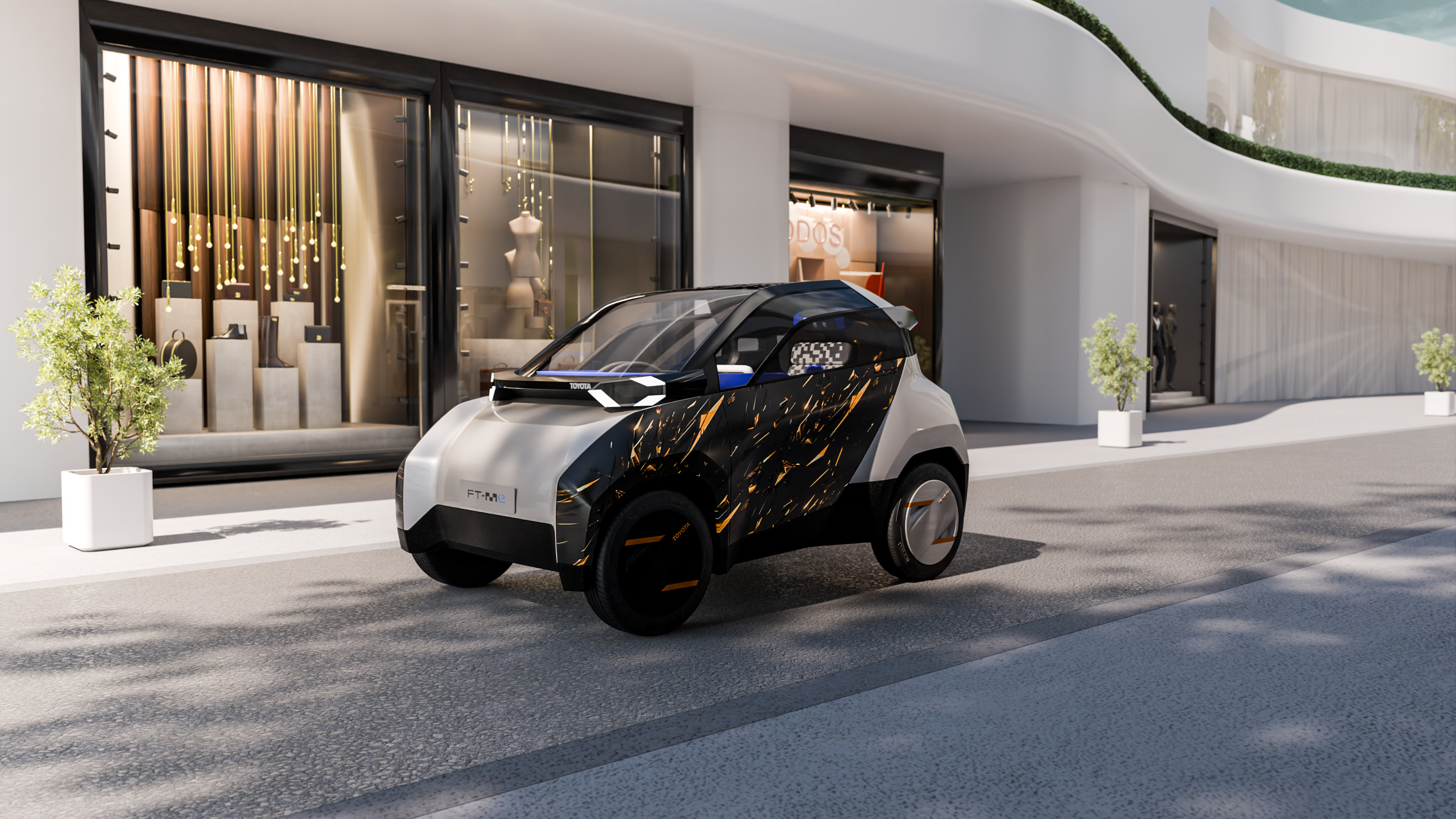
Receive our daily digest of inspiration, escapism and design stories from around the world direct to your inbox.
You are now subscribed
Your newsletter sign-up was successful
Want to add more newsletters?

Daily (Mon-Sun)
Daily Digest
Sign up for global news and reviews, a Wallpaper* take on architecture, design, art & culture, fashion & beauty, travel, tech, watches & jewellery and more.

Monthly, coming soon
The Rundown
A design-minded take on the world of style from Wallpaper* fashion features editor Jack Moss, from global runway shows to insider news and emerging trends.

Monthly, coming soon
The Design File
A closer look at the people and places shaping design, from inspiring interiors to exceptional products, in an expert edit by Wallpaper* global design director Hugo Macdonald.
‘Micromobility needs to address the challenges of changing cities,’ says Stijn Peeters. The head of New Mobility at Toyota Motor Europe believes that as urban areas grapple with mounting environmental pressures and ageing infrastructure, new modes of transportation must be compact, sustainable, and affordable.
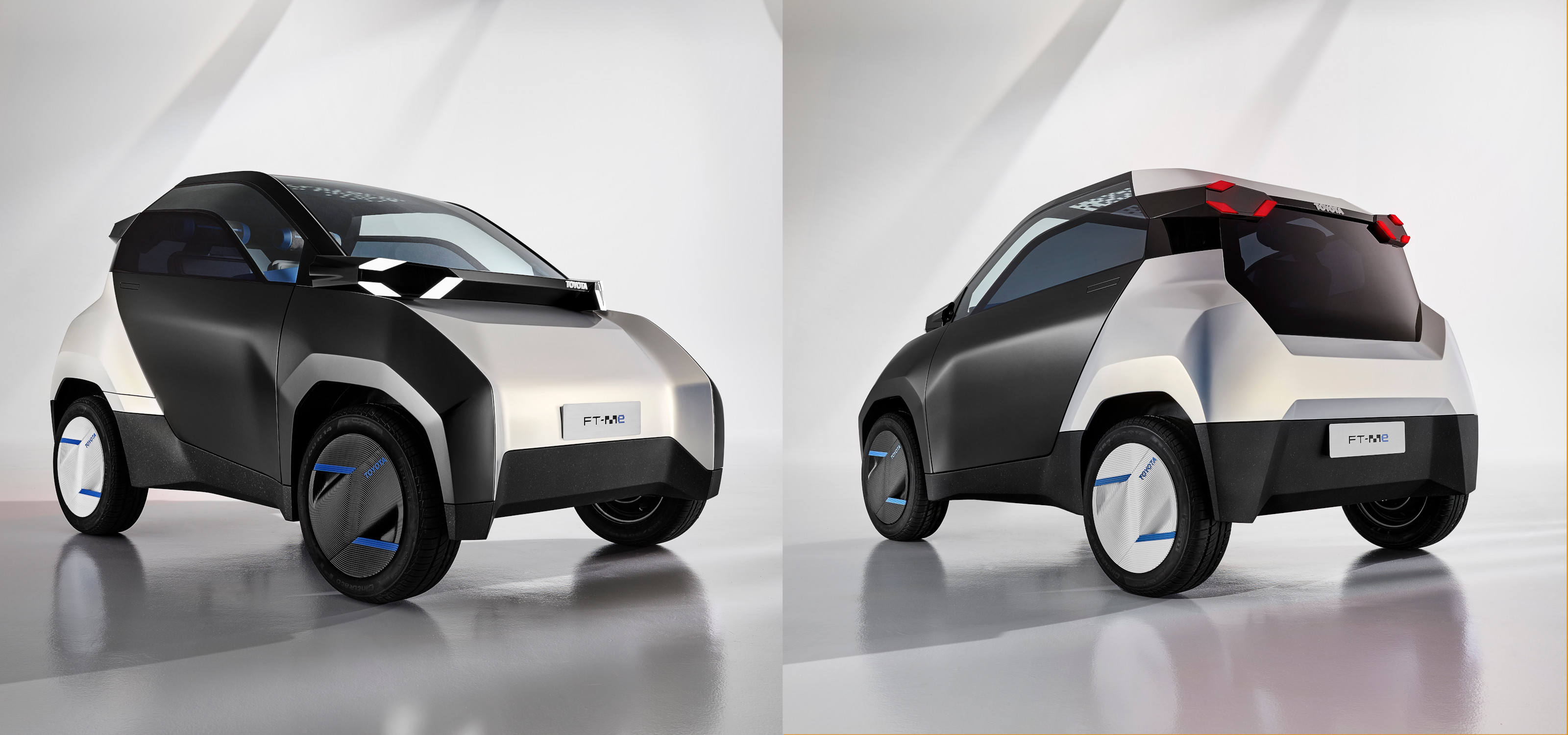
Toyota FT-Me Concept Car
‘We believe mobility is about creating universal, inclusive, and accessible solutions that offer the greatest number of options to the greatest number of people,’ Peeters continues. This vision is embodied in Toyota’s latest concept vehicle, the FT-Me, which aims to rethink transport to meet contemporary needs.
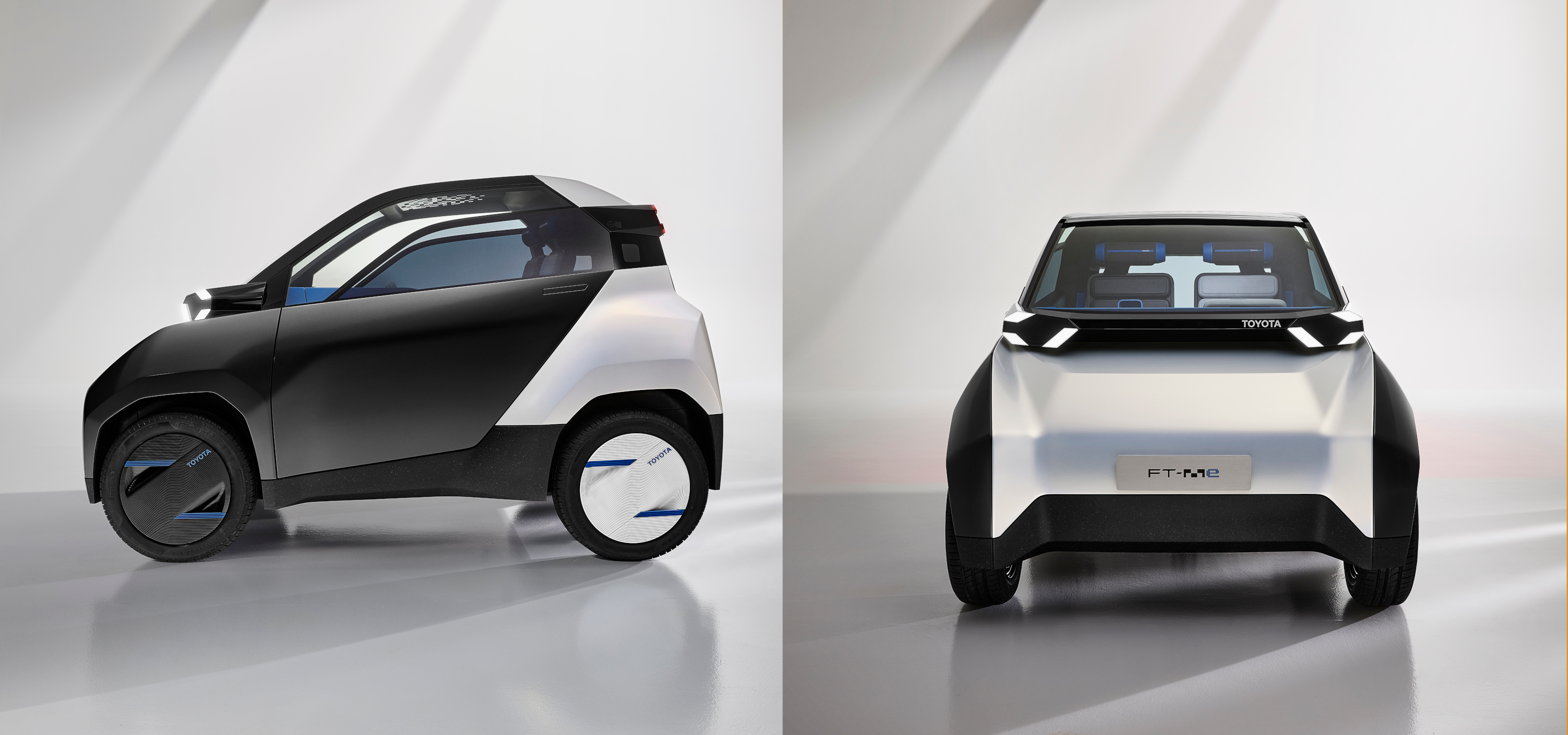
Toyota FT-Me Concept Car
Toyota FT-Me is a compact, versatile all-electric concept car that offers a more affordable and sustainable form of mobility for modern city dwellers. This spacious two-seater vehicle measures less than 2.5m in length. Its design emphasises manoeuvrability, as it occupies only half a parking space, making it easy to park in densely populated cities. ‘The concept plays a key role in exploring how Toyota can contribute to the evolving landscape of urban mobility,’ Peeters says.
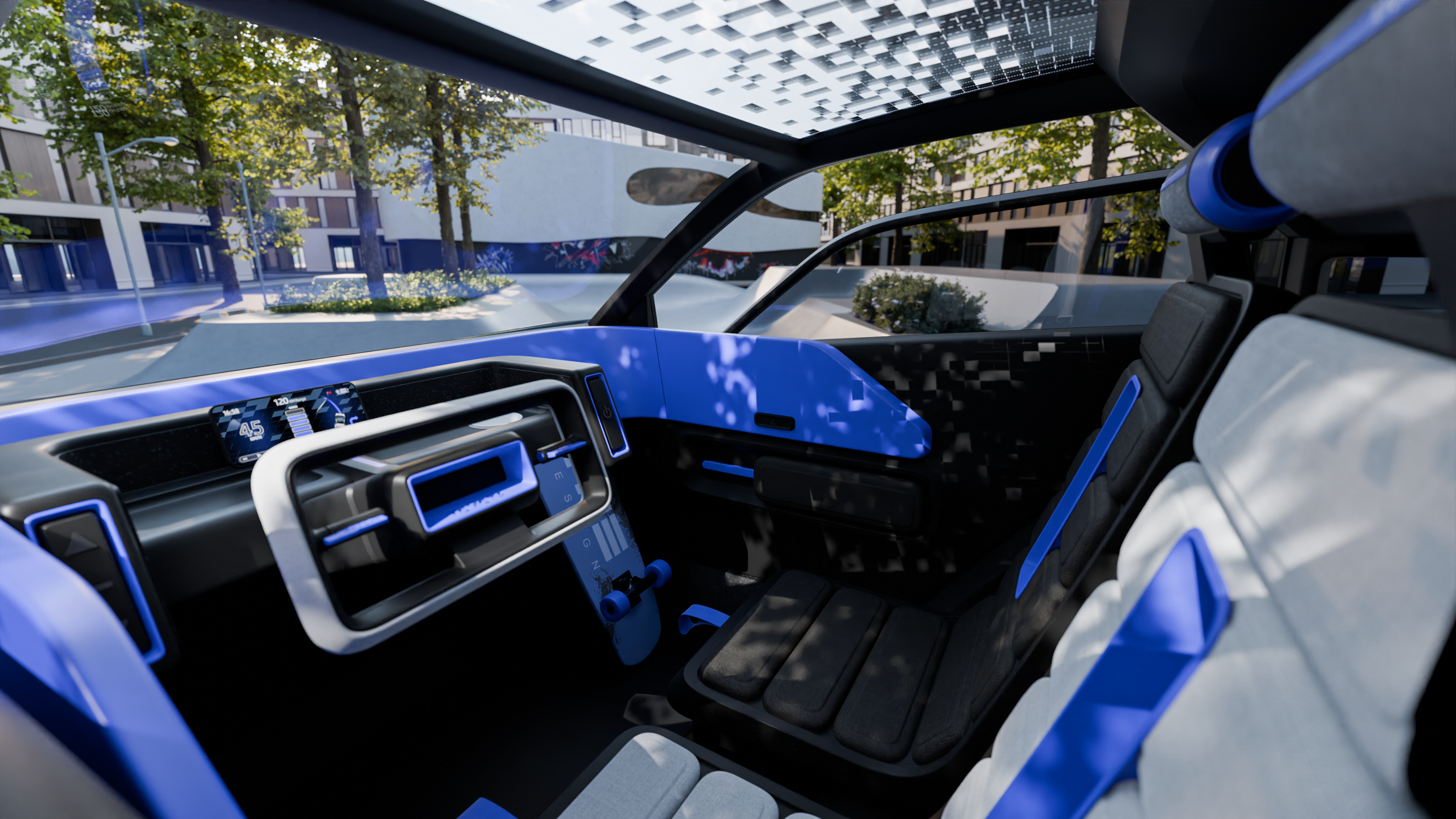
Inside the Toyota FT-Me Concept Car
Inspired by a pilot’s helmet, the two-tone design combines contrasting black and white to convey a sense of robustness. Boasting near 360-degree visibility, the generous greenhouse also enhances road safety by maximising eye contact with drivers and pedestrians. The removable passenger seats provide flexible cargo space, making the vehicle ideal for everyone from teenagers to delivery service workers.
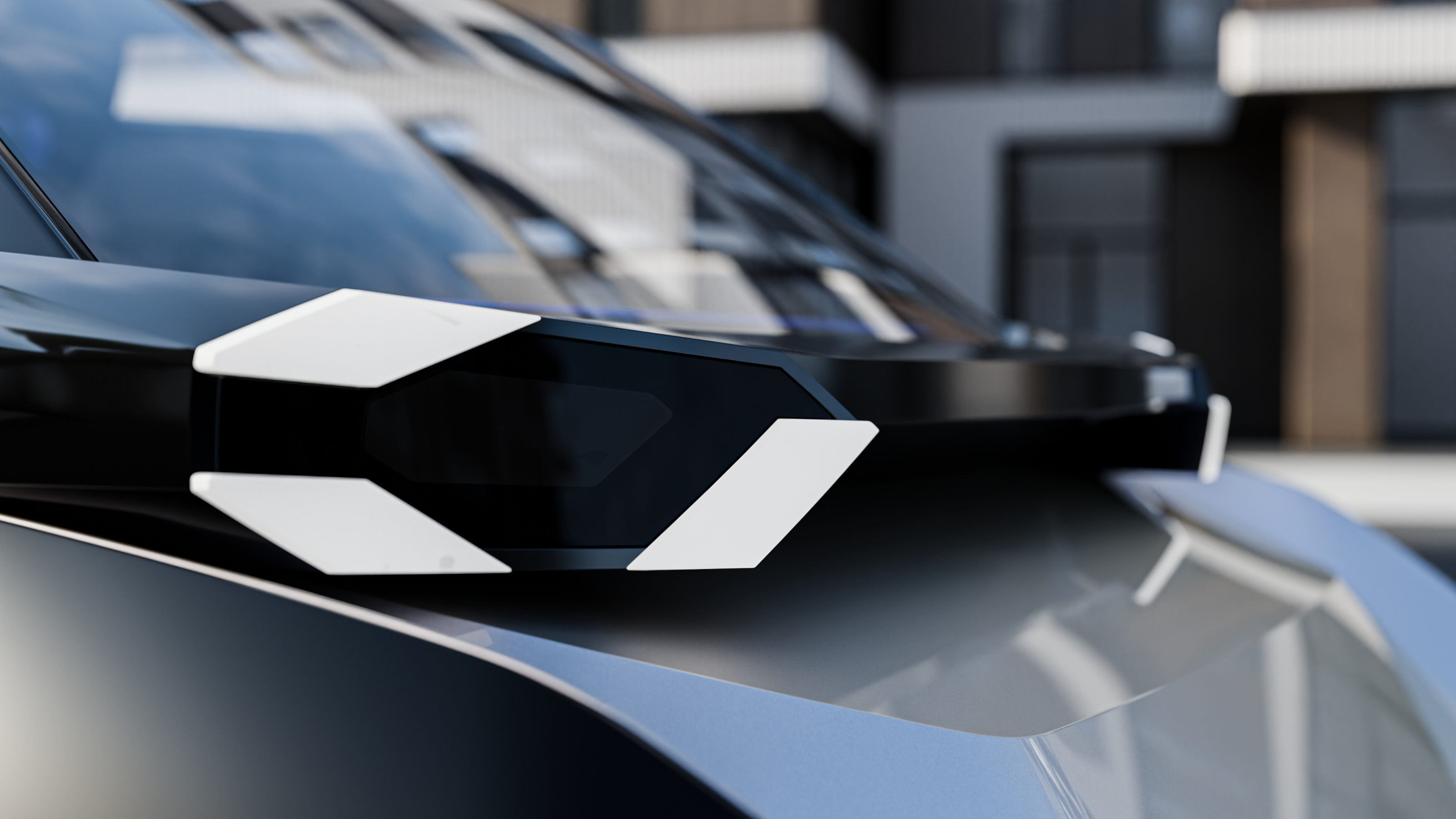
Detail design of the Toyota FT-Me Concept Car
‘Our goal is to develop the best mobility solutions tailored to diverse customer needs,’ states Peeters. This adaptability acknowledges that effective micromobility must serve multiple demographics simultaneously rather than targeting single groups. ‘People's mobility needs are increasingly diverse depending on where they live, whether in dense urban centres, suburban neighbourhoods, or more remote areas,’ he notes.
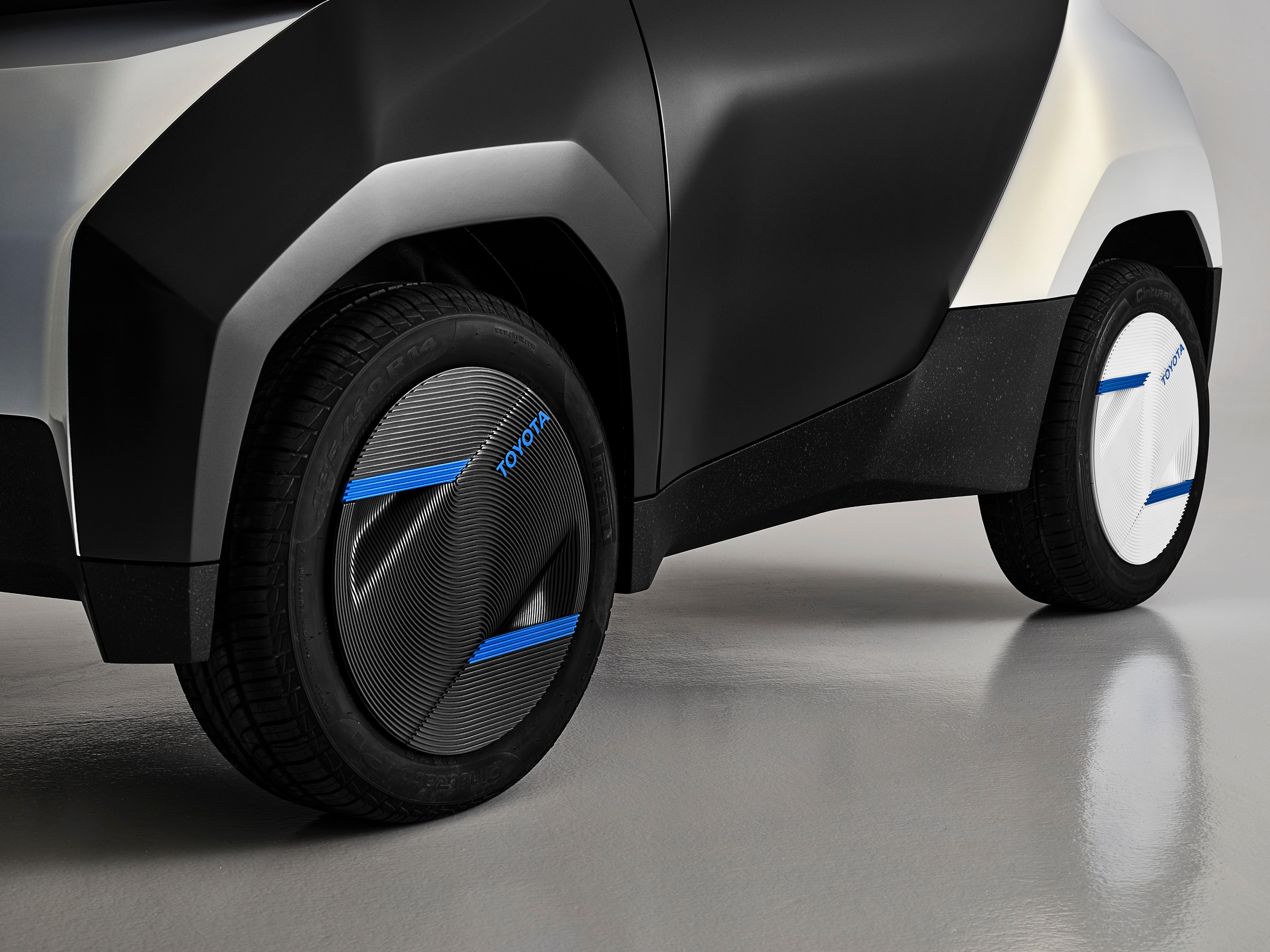
The two-tone design of the Toyota FT-Me Concept Car
One of the FT-Me’s differentiators from other micromobility vehicles is its commitment to environmental responsibility. ‘The car incorporates recycled materials and targets an impressive 90 per cent reduction in carbon footprint compared to today's typical city vehicles,’ says Peeters. Featuring a solar roof that can add up to 30km of range per day, as well as an energy-efficient propulsion system that consumes three times less energy per kilometre than conventional EVs, the FT-ME makes the smallest possible environmental impact.
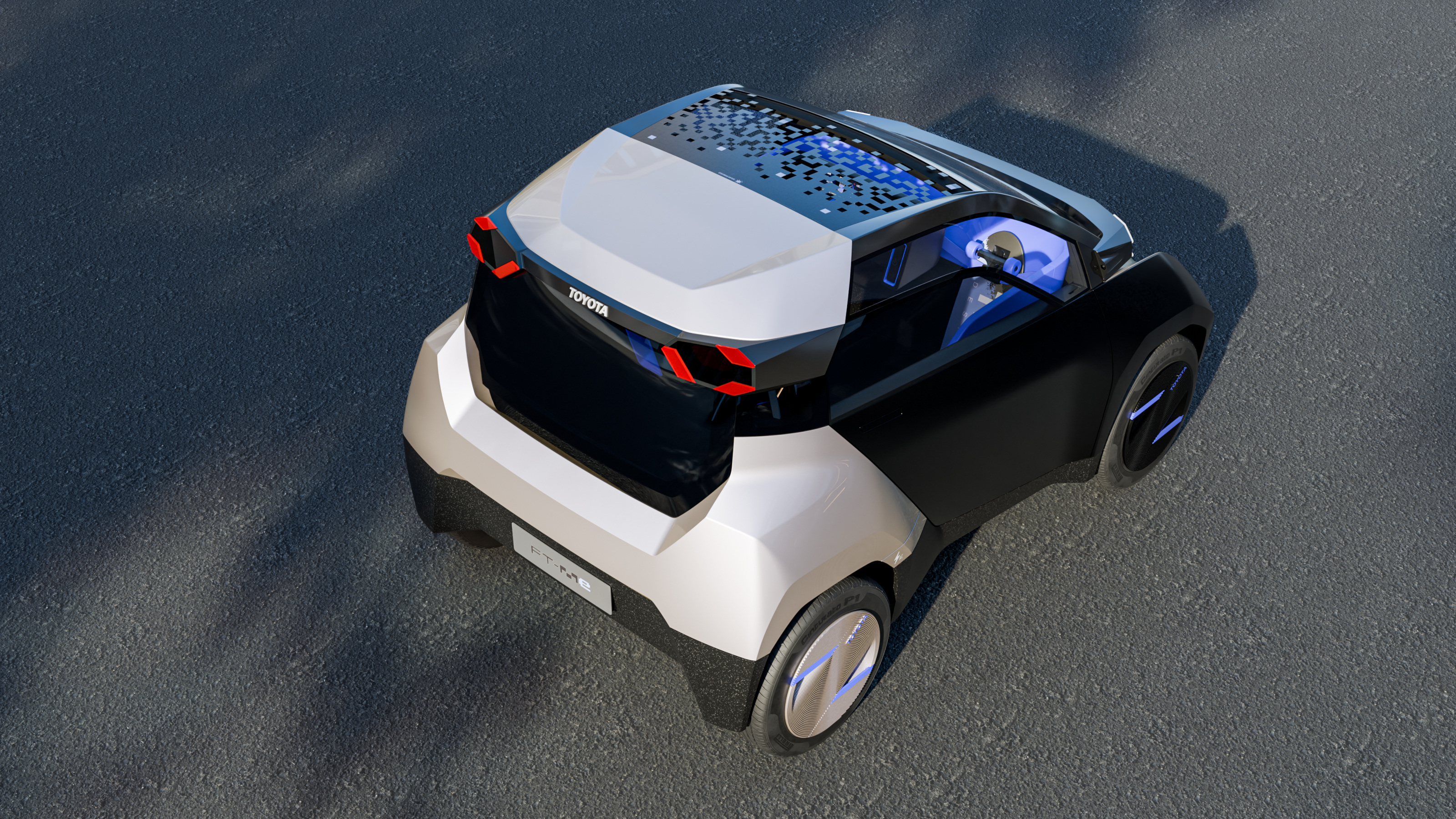
Toyota FT-Me Concept Car
‘The FT-Me concept is a result of a long study considering customer needs,’ says Peeters. From the i-Road and C+pod to the Tokyo 2021 and Paris 2024 Olympic mobility solutions, Toyota has long explored micromobility. According to Peeters, the success of vehicles developed for the Olympic Games helped Toyota come up with the FT-Me concept. ‘Building on deep knowledge of new mobility gained from Paris 2024, we were ready to take the next step by creating accessible micromobility addressing the evolving needs of city dwellers and modern urban challenges,’ he says.
Receive our daily digest of inspiration, escapism and design stories from around the world direct to your inbox.
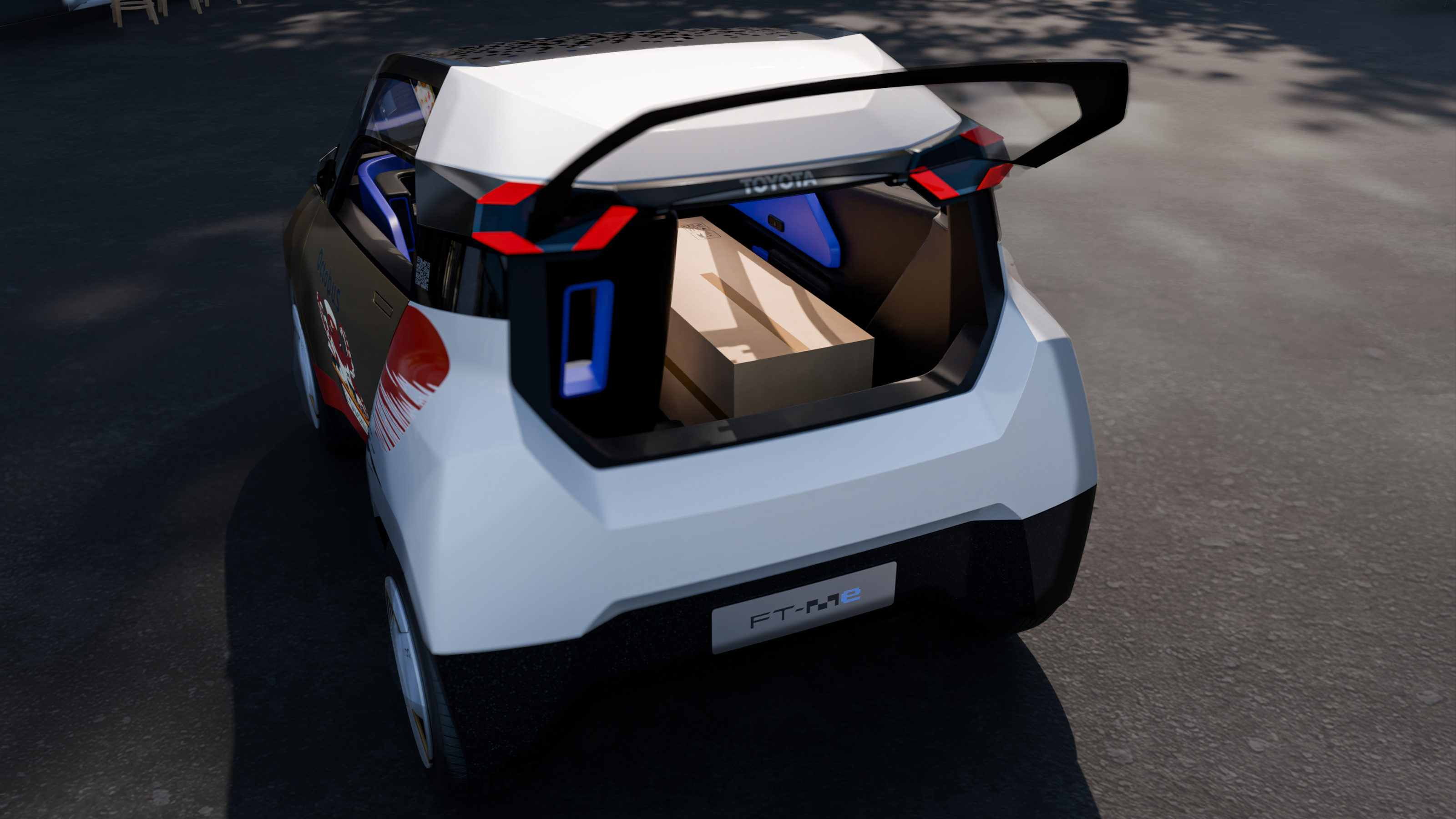
Folding seats turn the FT-Me into a tiny delivery vehicle
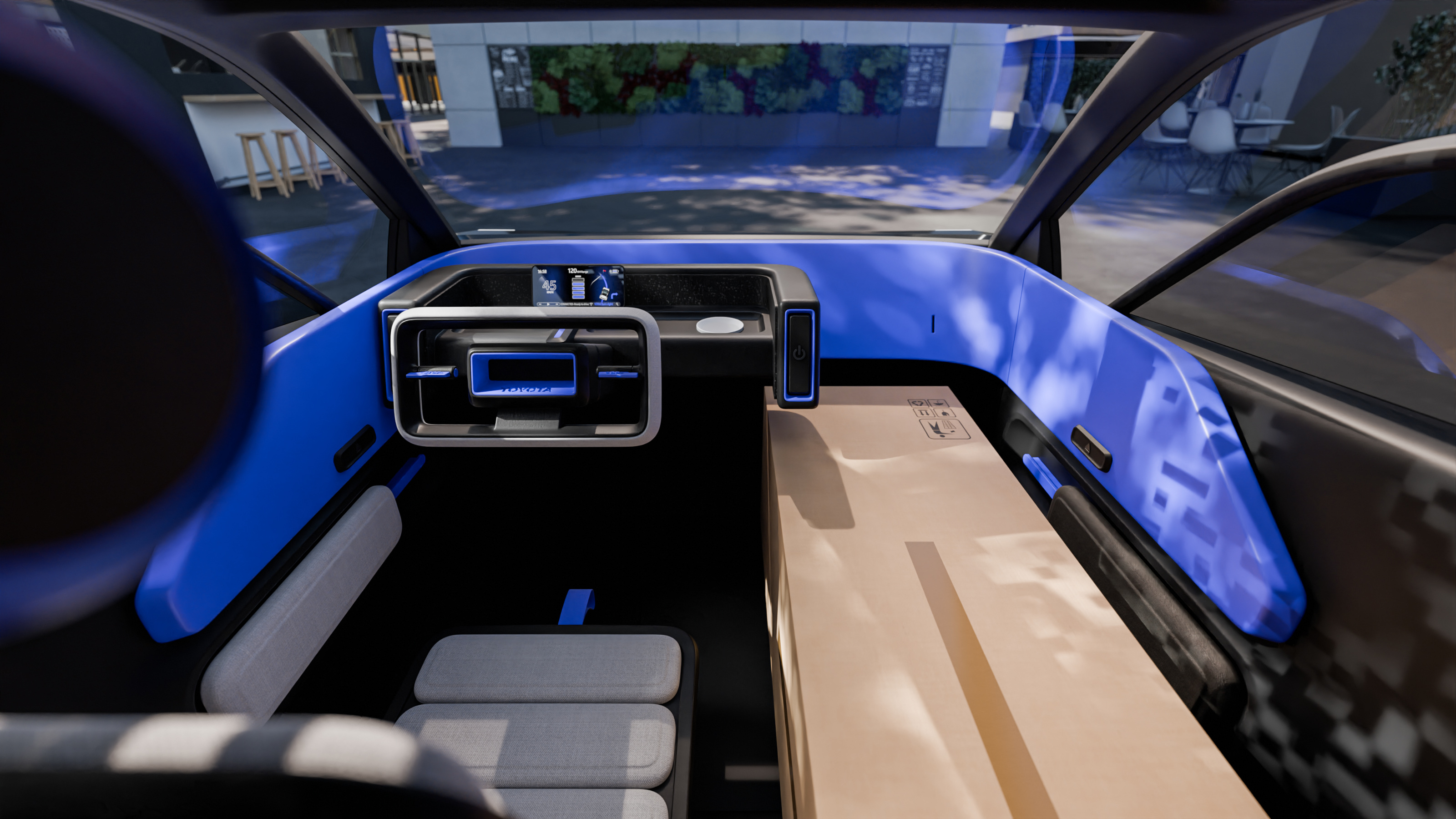
Boxing clever: the FT-Me can take surprisingly large pieces of cargo
The FT-Me concept distinguishes itself in the micromobility market by offering a new kind of mobility that is more affordable, sustainable, and adaptable. By blending cost-effectiveness, environmental responsibility, and practical functionality, the FT-Me responds directly to the demands of evolving urban environments.
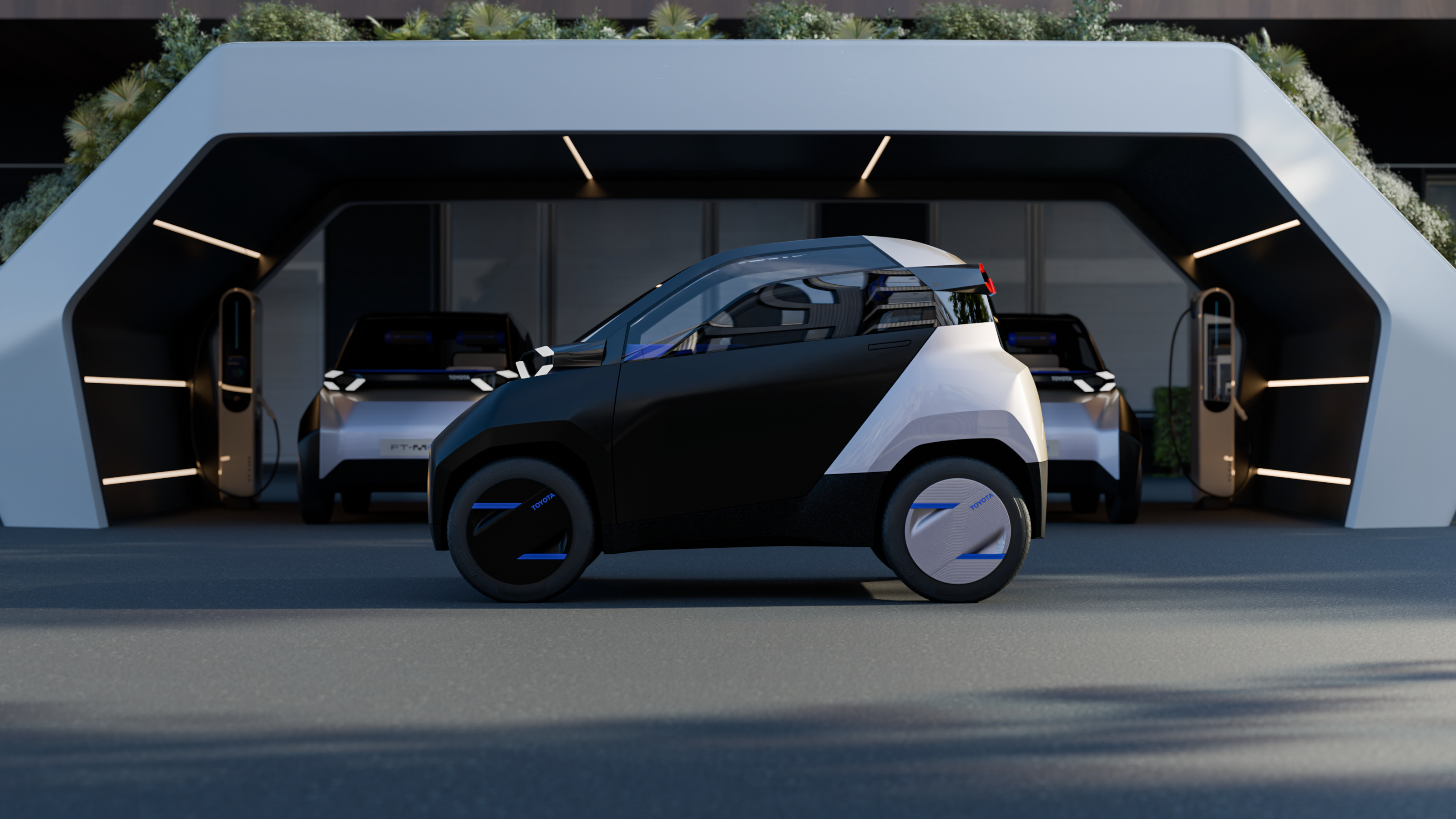
Toyota FT-Me micromobility concept
As cities continue to shrink, diversify, and intensify, concept vehicles like Toyota’s FT-Me present a nimble, connected, and eco-conscious vision for reimagining urban mobility.
Shawn Adams is an architect, writer, and lecturer who currently teaches at Central St Martins, UAL and the Architectural Association. Shawn trained as an architect at The Royal College of Art, Architectural Association and University of Portsmouth. He is also the co-founder of the socially-minded design practice Power Out of Restriction. In 2023, POoR won the London Design Festival’s Emerging Design Medal. Shawn writes for numerous international magazines about global architecture and design and aims to platform the voices of those living across the Caribbean, Asia, and Africa.